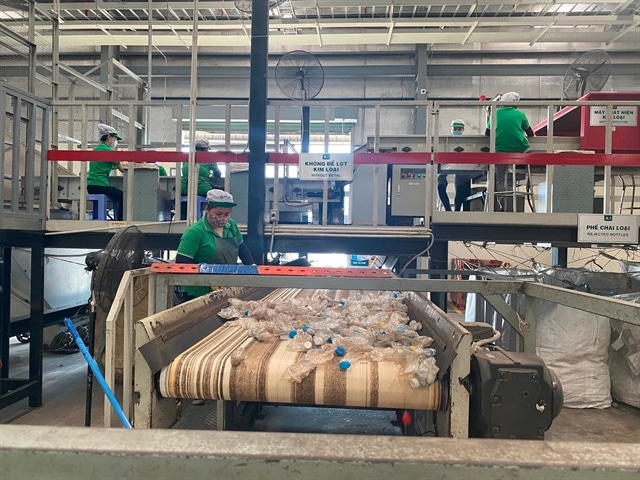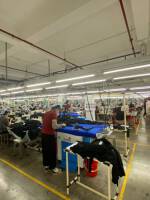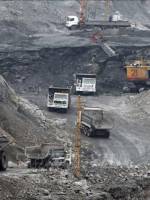
Việt Nam News and Law reporter Mai Hương speaks with Prof Bùi Quang Tuấn, vice president of the Vietnam Economic Association and former director general of Vietnam Institute of Economics, about the country’s journey towards sustainable development and green growth.
How do you assess Việt Nam’s transition towards sustainable development, especially as global environmental requirements are getting stricter?
Sustainable development is a global, irreversible trend. Việt Nam has firmly committed to the United Nations Sustainable Development Goals through concrete programmes and action plans, alongside green and digital transformation efforts.
Previously, Việt Nam participated in the implementation of Agenda 21 following the 1992 Earth Summit. This framework aimed to promote sustainable development in the 21st century.
Since 2015, Việt Nam has implemented the UN’s 2030 Agenda for Sustainable Development by localising it into 17 goals and 115 targets. Key policies include a 2019 roadmap and Resolution 136/NQ-CP the following year, which adds digital indicators and promotes coordinated development measures.
One key policy is the Green Growth Strategy, developed in phases towards 2020 and now towards 2030, which promotes clean energy, low emissions, green production and social equity. In 2022, Việt Nam also approved a Climate Change Response Strategy to 2050, outlining clear goals for adaptation, emissions reduction and sustainable development.
Việt Nam’s Climate Change Strategy to 2050 affirms its strong political will to reach net-zero emissions by 2050 – earlier than countries like China and India, which have set their targets to achieve net-zero emissions in 2060 and 2070, respectively. It has also launched detailed plans, including the 2021–2030 Climate Change Adaptation Plan and related implementation programmes.
Aligned with sustainable development goals, the 2020 Environmental Law introduced circular economy and extended producer responsibility (EPR) policies. In early 2025, Việt Nam adopted a National Action Plan to promote resource efficiency, reduce waste and encourage green jobs and lifestyles.
Among ASEAN countries, Việt Nam is considered one of the active nations in developing policy frameworks for greener development. However, the main challenge now lies in implementation rather than policy design.
For instance, during 2011–2022, the Green Growth Strategy met its policy development goal, but fell short on key targets like lowering emissions, expanding clean energy, greening production and encouraging sustainable consumption.
One key reason is weak implementation at the grassroots level, with gaps in coordination, funding, technology and guidance, making it hard for local authorities and businesses to act effectively.
With Việt Nam’s commitment to achieve net-zero emissions by 2050, what practical steps should be prioritised in the next decade?
To reach this target, Việt Nam needs to carry out effectively the approved strategies.
The Green Growth Strategy targets lower emission intensity, clean energy, green production, sustainable consumption and greener lifestyles, while also emphasising waste management, emissions cuts and the circular economy.
Solutions ahead are diverse, but in my opinion, priorities should be given to green infrastructure and applying science, digital technology and green processes in production and services.
At the same time, it is necessary to mobilise financial resources, ensure skilled personnel, and shape a green transformation ecosystem based on technology and digital application – in short, a green, digital and smart ecosystem.
On the financial side, Việt Nam must utilise green tools like green bonds, green credit and sustainable investment funds. Risk-sharing funds for green production and energy are also worth considering, as they can motivate cleaner business models.
Yet many small- and medium-sized enterprises (SMEs) still lack funding, skills and market information. Government support is essential, including tax incentives, subsidies, financial aid, training and clear guidance for green transition.
Raising awareness is also essential. Workers, managers and consumers all need better knowledge of green practices. Consumers must be encouraged to make environmentally responsible choices. Workers and business leaders must be trained in digital and green skills to keep up with the shift to a low-carbon economy.
Việt Nam also needs a green production and consumption ecosystem, linking businesses, agencies, research institutes, universities, banks and investment firms. This should run on digital platforms to enable data sharing, coordination and joint innovation.
Lastly, international cooperation is vital. The Just Energy Transition Partnership, which pledged US$15.5 billion in support for Việt Nam, offers great potential, but disbursement has been slow due to institutional and coordination issues, which must be resolved to accelerate the transition.

Việt Nam began implementing its EPR mechanism nearly two years ago, yet many businesses still report confusion. What is your assessment of the current process?
Việt Nam was among the first countries in the ASEAN region to introduce EPR in its regulations.
The 2020 revised Law on Environmental Protection introduced EPR, requiring manufacturers and importers to manage waste from their products and packaging. Decree 08/2022/ND-CP outlines mandatory recycling rates and timelines, while related documents provide action plans and detailed guidance. Several ministerial circulars further support EPR implementation.
The legal framework is mostly ready. However, the implementation remains challenging, especially for SMEs. Some still face confusion due to the lack of information and the complex regulations, others face the weak recycling systems, the outdated technology and the limited financial support.
Only a few large or foreign-invested firms like Unilever, TH Group, Coca-Cola, Nestlé and Nutifood, along with some businesses in the packaging and paper industry, have led EPR efforts through the Vietnam Packaging Recycling Alliance for the past few years, but the impact on the broader business community remains limited.
A major barrier is the weak digital infrastructure and waste management is not yet digitised, making it hard for companies to monitor and report their recycling efforts. Collection systems are scattered and often inadequate, especially for complex waste like electronics or packaging.
Finance is another issue. Companies are expected to contribute to the Environmental Protection Fund according to the regulation, but how the fund mechanism operates remains unclear, creating little incentive. Other tools, such as low-interest loans or technology support, are either unavailable or challenging to access.
Most SMEs lack the capacity to develop their own recycling systems and need cooperation at the industry or sector level. Việt Nam still lacks a full support ecosystem to help these businesses meet their obligations.
Public awareness is also low. Many businesses do not fully understand EPR requirements, while consumers are not yet used to sorting waste or choosing eco-friendly products. Communication on this issue remains limited and uncoordinated.
For EPR to succeed, Việt Nam needs more than laws. A complete support programme is needed, including clear procedures, financial tools, training, technology access, communications and a mix of incentives and penalties. Only then can the country move from awareness to action and achieve real results.
What are the most enduring obstacles in the green transition, and how can the connection between local governments and businesses be improved?
The biggest bottlenecks come from four main areas. The first is the lack of coherence and clarity in policy implementation. While Việt Nam has issued many strategies and action plans, some are too generalised.
The second one is limited implementation capacity. Government agencies still struggle with coordination, especially when many stakeholders are involved. Even good policies may still fail if there is ineffective coordination during the implementation process.
The third aspect is financial. Green growth has often been combined with the climate change budget, instead of having its own dedicated and stable funding. The lack of financial sources makes it difficult to carry out the tasks specified.
The fourth challenge is the absence of a strong green ecosystem. For sustainable development, businesses must be central, supported by research institutions, training centres, financial providers, service companies and government agencies, all working together on a unified digital platform. Without this, implementing circular economy and low-emission policies is difficult.
To improve coordination, government managers should act as facilitators – supporting businesses with finance, information, technology and training. Clear, transparent mechanisms are also needed to avoid overlap, cut red tape and enable effective implementation.
Businesses also need stronger motivation to invest in green transformation. These investments should be seen not as costs, but as long-term opportunities to build brand value and join global supply chains.
Việt Nam should also accelerate development of the domestic carbon market, which can provide both funding and incentives for emission reduction and carbon absorption efforts like forest planting.
Finally, Việt Nam needs to encourage green social transformation. Environmental education should begin at an early age, starting from kindergartens, so that a culture of sustainability can be built for the long term.
Mai Hương (VNS)





